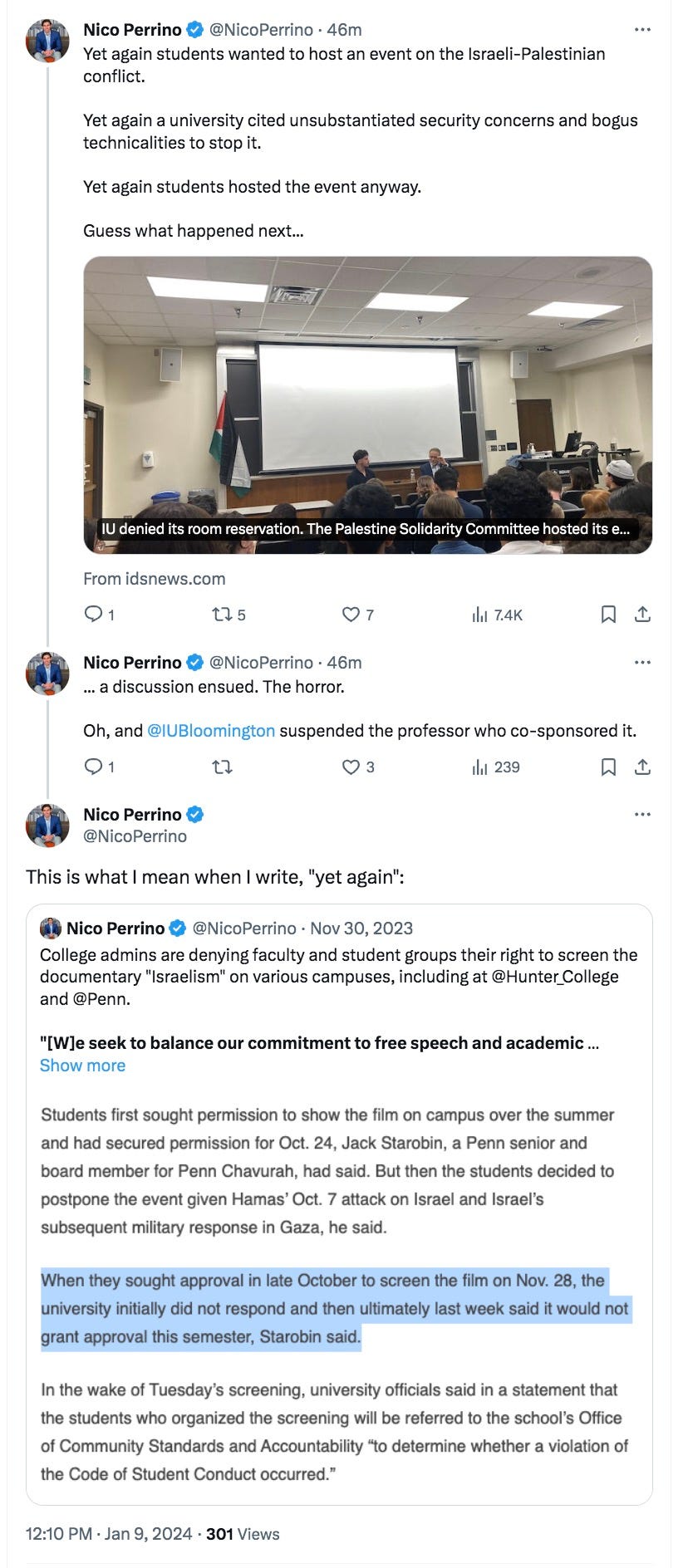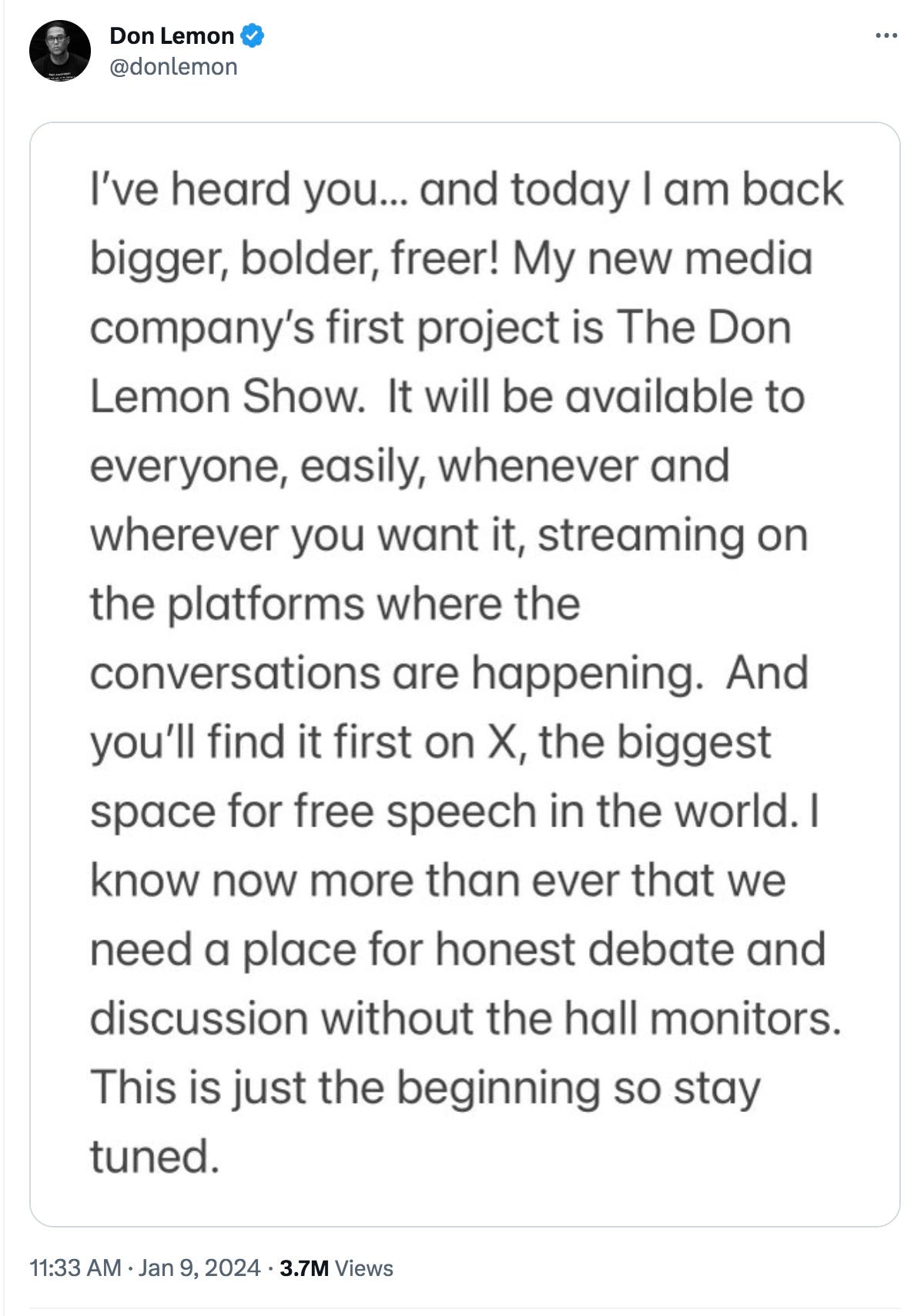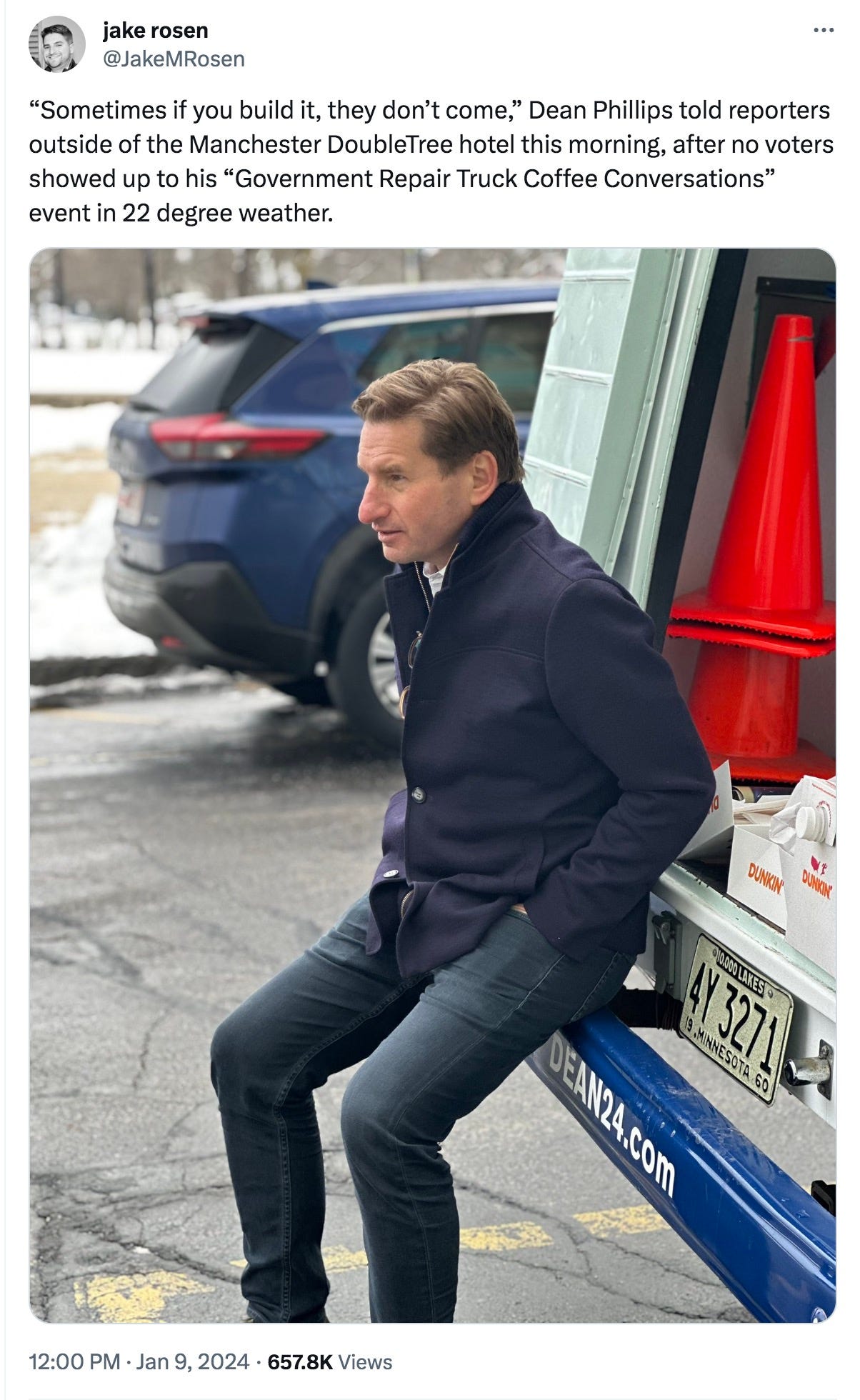E-Pluribus | January 9, 2024
MIT still a BNF for DEI; speaking different languages; and groupthink on campus.
A round-up of the latest and best musings on the rise of illiberalism in the public discourse:
Heather Mac Donald: Unrepentant DEI at MIT
If the Massachusetts Institute of Technology is any indication, the lessons of Claudine Gay and Harvard have been lost already, writes Heather Mac Donald at City Journal. A recent announcement by MIT’s president suggests the school will double down on DEI with the addition of a new Vice President for Equity and Inclusion to oversee MIT’s Strategic Action Plan for Belonging, Achievement, and Composition.
MIT president Sally Kornbluth announced on Wednesday that the university would soon reveal its inaugural Vice President for Equity and Inclusion (VPEI). If one wanted evidence of the disconnect between university culture and the outside world, Kornbluth’s announcement provides it.
Since October 7, universities have been the focus of nearly unprecedented public attention, triggered by student and faculty support for the Hamas terror attacks on Israel. Alumni from schools like Harvard and the University of Pennsylvania charged their universities with complicity in anti-Semitism and demanded that Jews be included in the roster of “marginalized” groups protected by the diversity, equity, and inclusion (DEI) bureaucracy.
Eventually, however, it dawned on the rebellious donors that the DEI complex was not the solution to perceived anti-Semitism but part of the problem, since the DEI apparatus enforces the progressive world view that the West (now embodied by Israel) is unremittingly racist, colonialist, and oppressive.
[. . .]
And yet here was Sally Kornbluth on January 3, blithely trumpeting the imminent arrival of MIT’s latest diversity sinecure, the VPEI. The university already has an Institute Community and Equity Officer (ICEO) charged with being a “thought leader on the subjects of community, equity, inclusion, and diversity,” according to the ICEO’s official description. This equity officer oversees MIT’s Strategic Action Plan for Belonging, Achievement, and Composition, which requires each academic program to improve the “representation” of “underrepresented” graduate students, faculty, postdocs, and undergraduates. The Strategic Action Plan for Belonging, Achievement, and Composition posits that the “composition of our community, and of our leadership, should reflect a commitment to diversity.” It provides no argument for why MIT’s “composition” should “reflect a commitment to diversity,” nor evidence for why such a commitment is compatible with colorblind academic excellence.
[. . .]
Kornbluth exemplifies a rule of thumb: anyone in a university leadership position not affirmatively opposed to race politics supports antimeritocratic ideas. She also demonstrates just how blinding campus ideology is: her first instincts are to parrot local received wisdom about MIT’s being insufficiently “welcoming” to diversity and not yet being a place where “all feel that we belong,” in Kornbluth’s words. Kornbluth is proceeding with initiatives called “Standing Together Against Hate” and “Unity Across Differences”—all invitations for further interventions from diversity ideologues.
Read the whole thing.
Matt Lutz: The Apparent Conflict Between Universal and Particular Language
The meaning of words has been a focus of Pluribus since its beginning. Even when people use the same words in conversation, they don’t always mean (or hear) the same thing. At Persuasion, Matt Lutz writes about ways to bridge the gaps.
One recurring point of contention in political debates is what language we should use to discuss matters of moral and political significance. Many on the progressive left prefer particularist moral language, which emphasizes the specific needs and grievances of particular groups. Others prefer to use universalistic language, which refuses to draw distinctions between groups and focuses on what unites us. The paradigm of this disagreement is the debate between those who prefer the slogan “all lives matter” and those who prefer “black lives matter,” although the conflict is larger than this. For example, many progressives have adopted slogans like “black is beautiful” or “the future is female” that those on the right dislike.
[. . .]
Those who prefer the use of universalistic moral language worry that those who use particularist moral language are being narrow and tribal in their concerns. And those who prefer the use of particularist moral language worry that those who prefer the use of universalistic moral language are downplaying the seriousness of the burdens that fall disproportionately on particular groups or individuals. These worries arise through pragmatic implication: no one is saying that they’re indifferent to the rights and needs of others, yet that is what is getting implied, on both sides.
Fortunately, there’s a way to avoid this miscommunication. Be particular when talking about problems, but universal when discussing the moral principles that we use to guide solutions.
We have a model for how this works in Martin Luther King Jr.’s “I Have a Dream” speech. While the soaring rhetoric from the end of the speech is the most famous part, the bulk of the speech is a list of particular grievances.
“We can never be satisfied as long as the Negro is the victim of the unspeakable horrors of police brutality. We can never be satisfied as long as our bodies, heavy with the fatigue of travel, cannot gain lodging in the motels of the highways and the hotels of the cities. We cannot be satisfied as long as the Negro's basic mobility is from a smaller ghetto to a larger one. We can never be satisfied as long as our children are stripped of their selfhood and robbed of their dignity by signs stating: for whites only.”
In passages like this, King is articulating particular grievances suffered by black Americans.
Yet when it comes time to explain why this is wrong, and why America can and should do better, King shifts to universal language. “So even though we face the difficulties of today and tomorrow, I still have a dream. It is a dream deeply rooted in the American dream. I have a dream that one day this nation will rise up and live out the true meaning of its creed: We hold these truths to be self-evident, that all men are created equal.” In addition to being a brilliant piece of rhetoric, condemning bigots by an unassailable appeal to universal values, King deftly avoids the alienating pragmatic implications that are all too common in contemporary political debates. By being particular when talking about problems, the maxim of relevance doesn’t trigger any unsavory implications: your problem matters. And by being universal when talking about the moral principle behind solutions, the maxim of quantity doesn’t trigger any unsavory implications either: we must address your problem because everyone’s problems matter.
Read it all here.
Greg Lukianoff and Rikki Schlott: Universities Use DEI Statements To Enforce Groupthink
For decades, university faculties have, on the whole, leaned decidedly left. On the surface, increasing “diversity” sounds like a plus. However, write Greg Lukianoff and Rikki Schlott, the DEI statements required by many schools from incoming hires are accomplishing the exact opposite (via Reason).
Since 2014, an unprecedented number of college professors have been targeted, punished, or fired for what they said, published, or taught. Meanwhile, colleges and universities are becoming even less ideologically diverse than they already were. Professors around the country are reporting their speech chilled in an increasingly homogenous environment.
While you might expect universities to respond to this issue by making efforts to mitigate groupthink, the opposite has occurred. Over the past several years universities across the country have decided that it's time to add DEI statements as part of the hiring and review process.
"And while some argue that DEI statements are not litmus tests, we think that defies common sense and the evidence in front of us. Take this statement from Vassar College's Office of the Dean of the Faculty:All department and program hiring for tenure-track and multi-year faculty positions are requesting all candidates to submit a diversity statement. This statement should provide the candidate's unique perspective on their past and present contributions to and future aspirations for promoting diversity, inclusion, and social justice in their professional career. The purpose of the diversity statement is to help departments and programs identify candidates who have professional experience, intellectual commitments, and/or willingness to engage in activities that could help the College contribute to its mission in these areas."
Even if you completely agree with the importance of DEI, there really isn't any reason to ask a potential physics professor, for example, to discuss their prior, past, and future "intellectual commitments" to "social justice." That is, unless you're looking to test their political outlook as a condition for their employment. The purpose of DEI statements is obvious, and professors themselves know it.
[. . .]
[W]e know that evaluators actually are eliminating candidates solely based on their diversity statements. A self-survey conducted by the University of California, Berkeley, found that, during a search for faculty in the life sciences department, 76 percent of applicants were eliminated solely on the basis of their diversity statements. Another departmental search found that the number was 78 percent. Through 800 pages of "Diversity Faculty Recruitment Reports" from Ohio State University, John Sailer of the National Association of Scholars discovered that "racial diversity was touted as a tool to achieve viewpoint diversity, but viewpoint conformity often served as a tool to meet de facto quotas." Among other examples, Sailer notes that "a committee searching for a professor of freshwater biology selected finalists 'based upon a weighted rubric of 67% research and 33% contribution to DEI,'" and that "for a search in astrophysics, 'the DEI statement was given equal weight to the research and teaching statements.'" Sailer correctly points out that this "would strike many as a poor metric for judging astrophysicists."
Read it all.
Around Twitter (X)
The Foundation for Individual Rights and Expression’s Nico Perrino has a story out of Indiana about a Palestine Solidarity Committee student group that was denied meeting space to hold a discussion - and then held it anyway:
When life handed Don Lemon lemons, he made… free speech! Losing his longtime position at CNN last spring after suggesting that Nikki Haley “isn’t in her prime,” Lemon is back in the studio - his own studio - with a new show on Elon Musk’s X:
And finally, if you are a politician looking to engage voters on the hot-button issues of the day, sorry, but “Government Repair Truck Coffee Conversations” is already taken:









